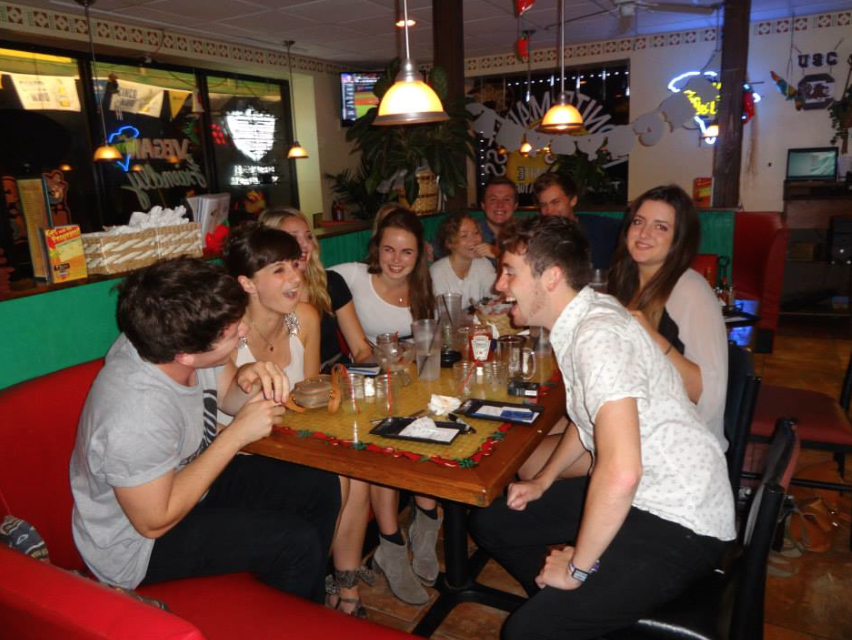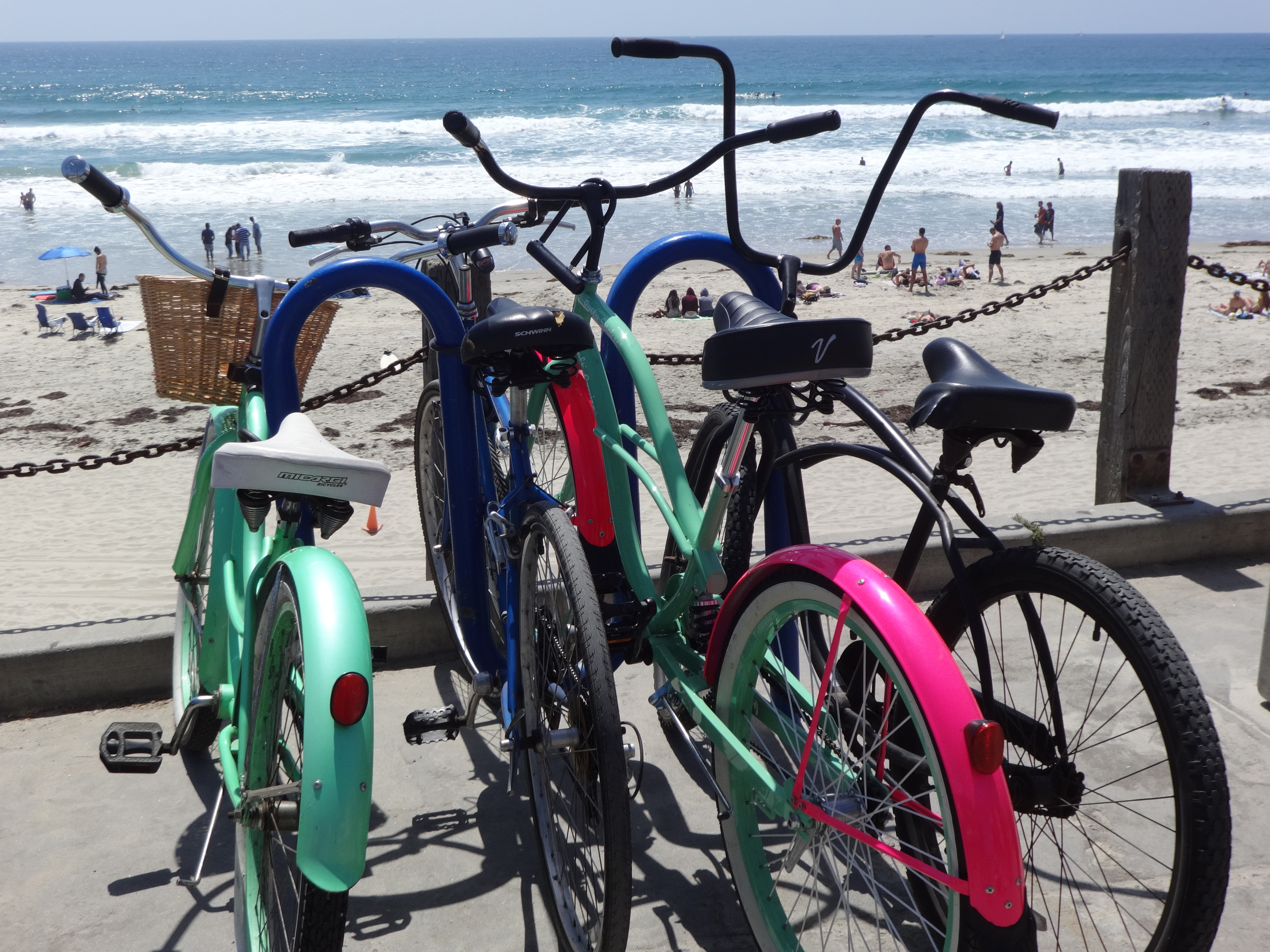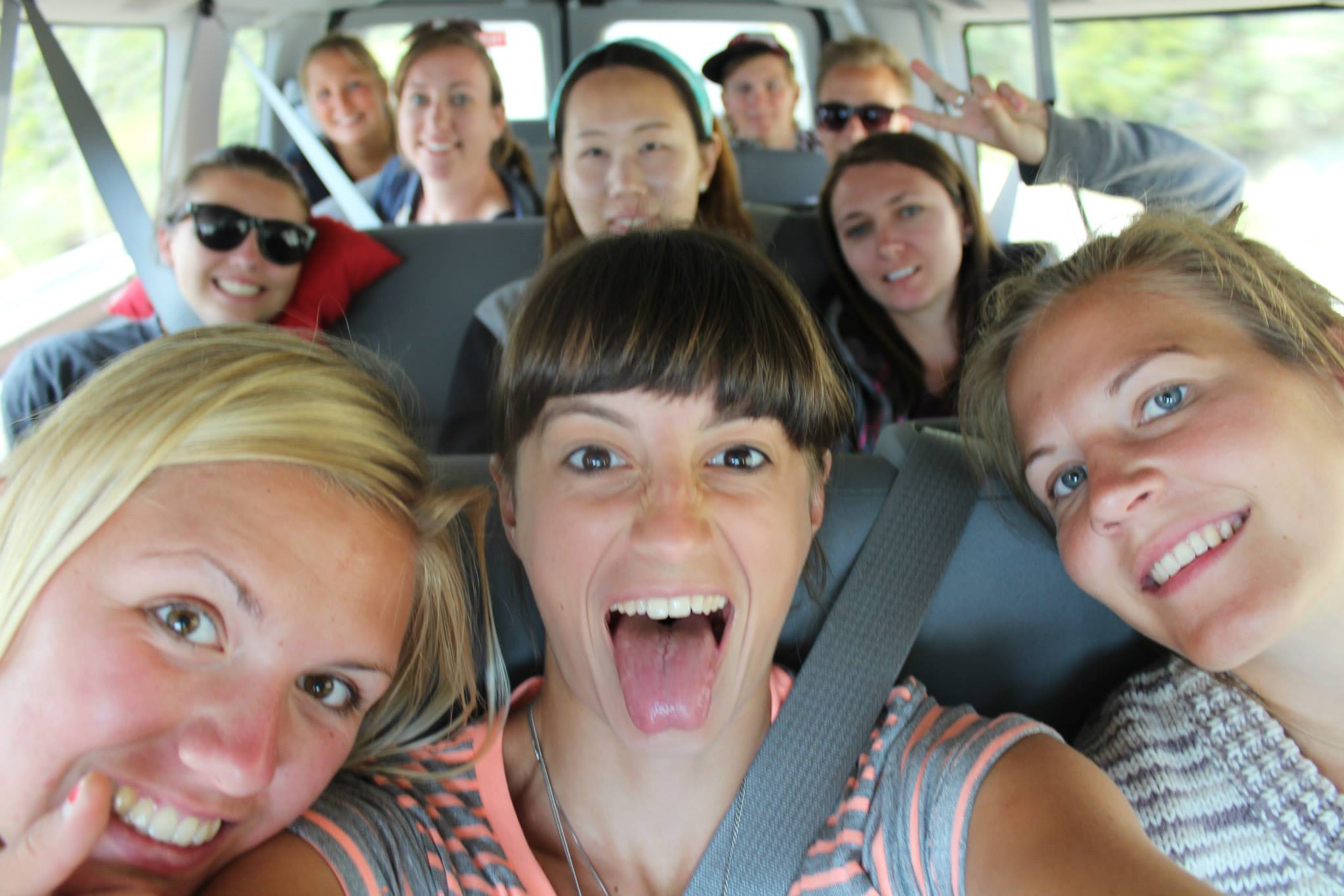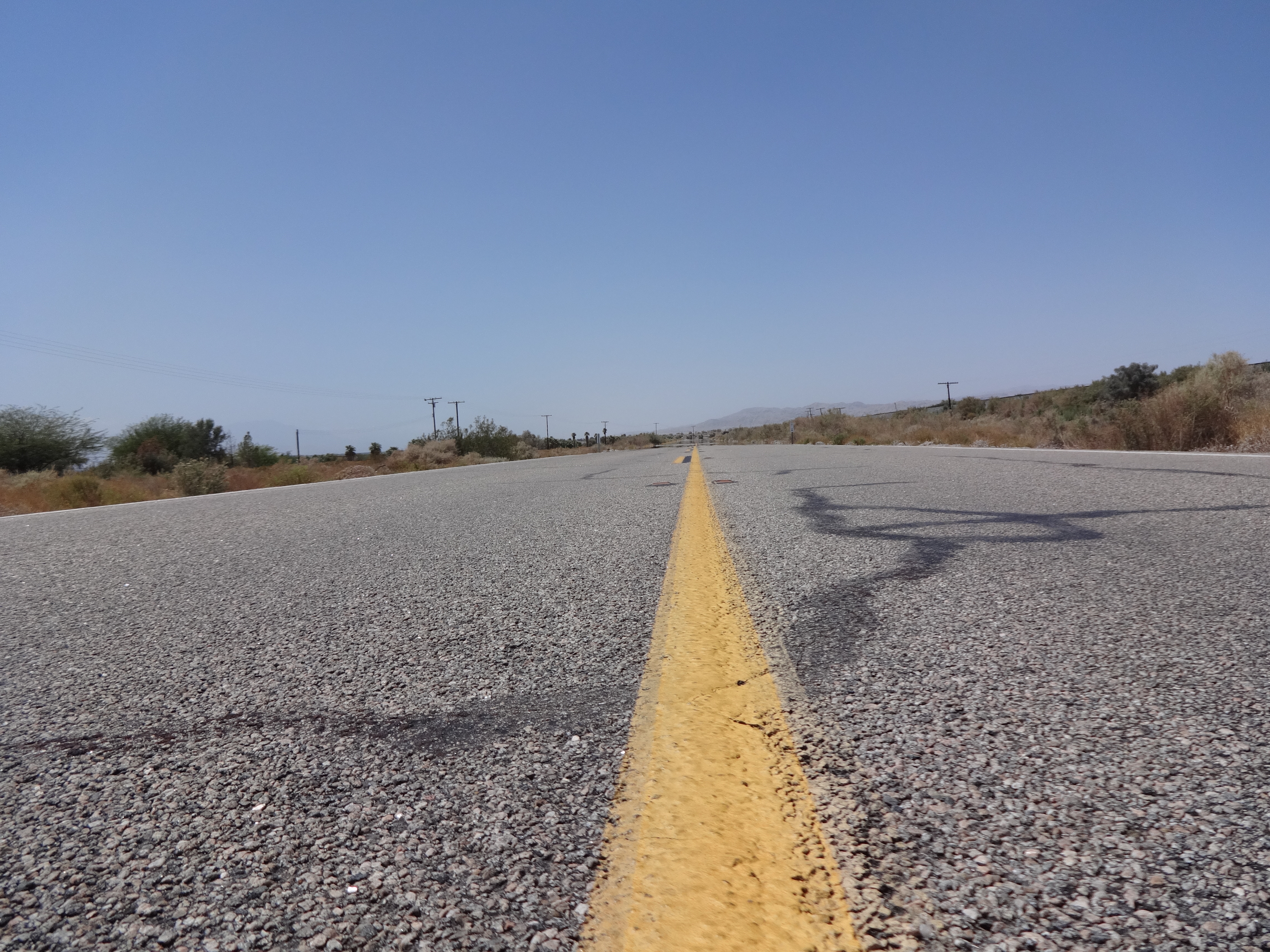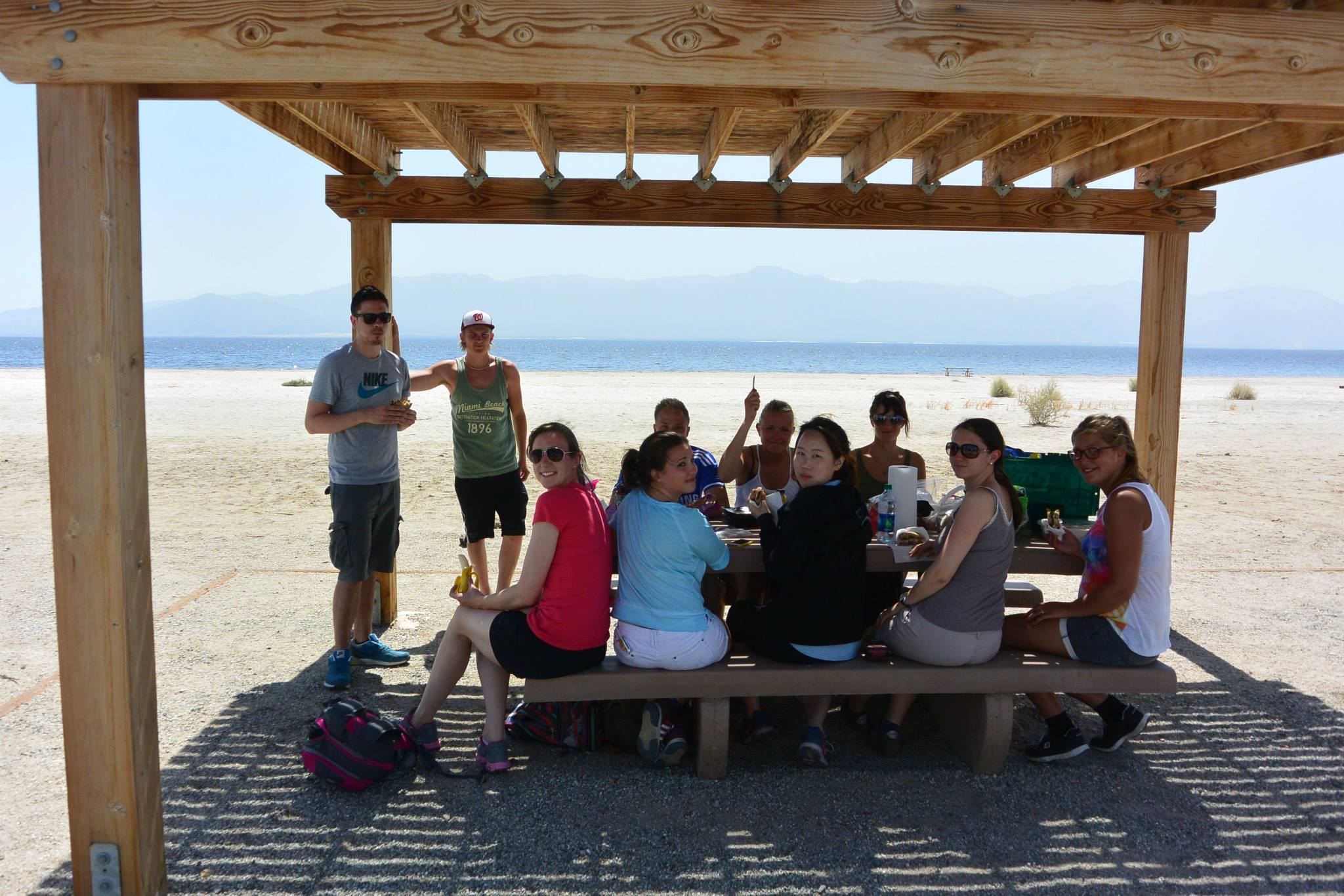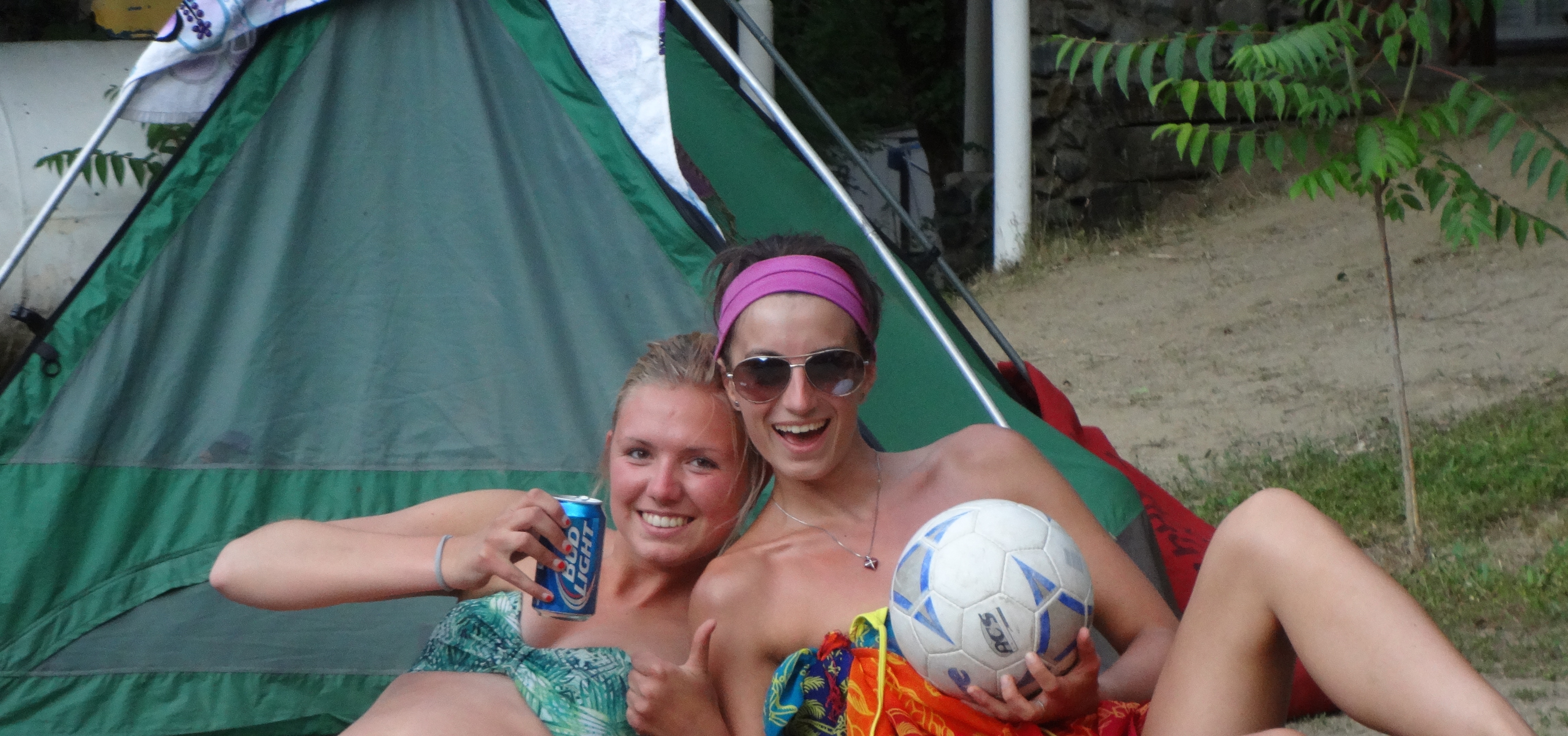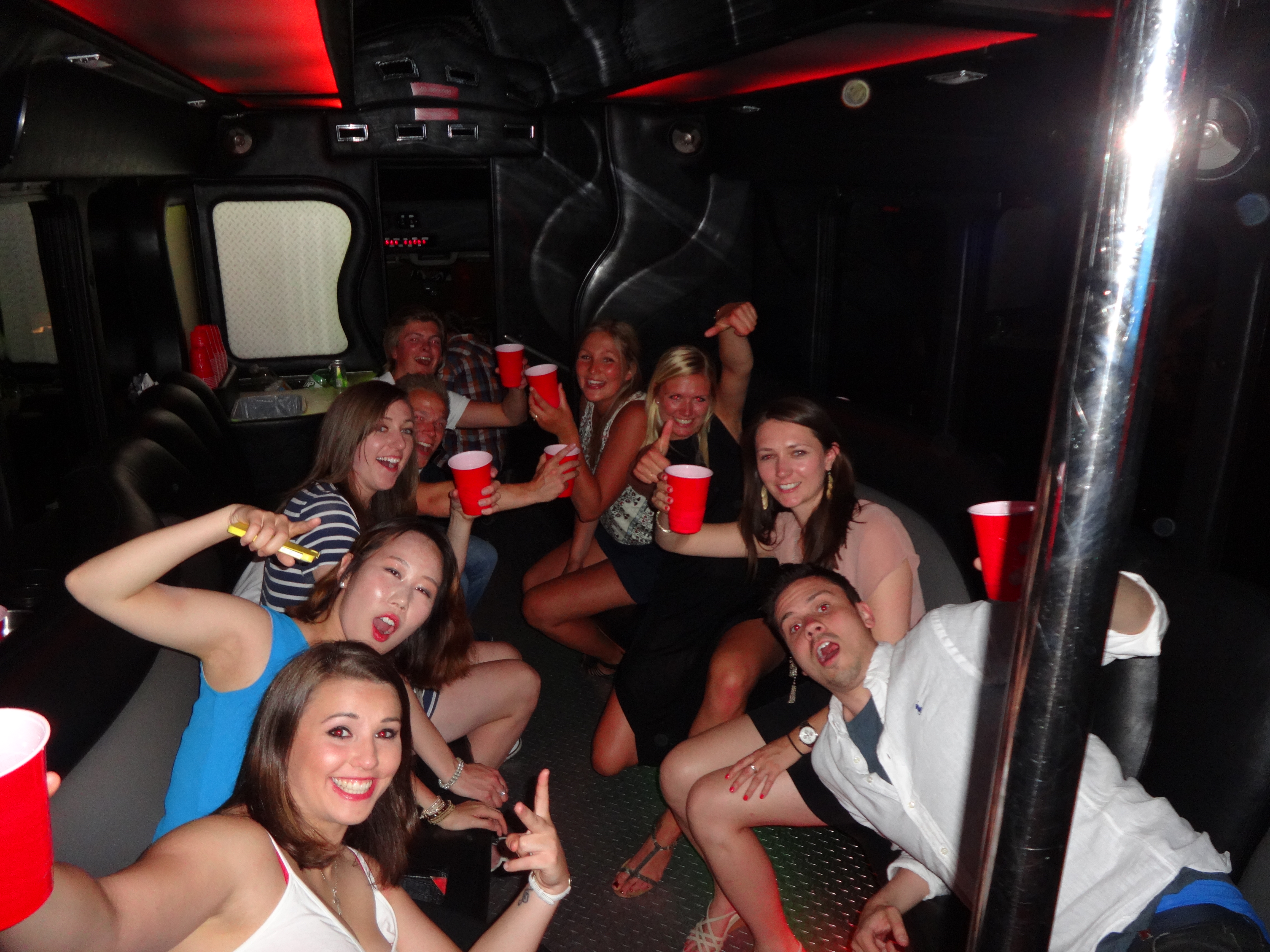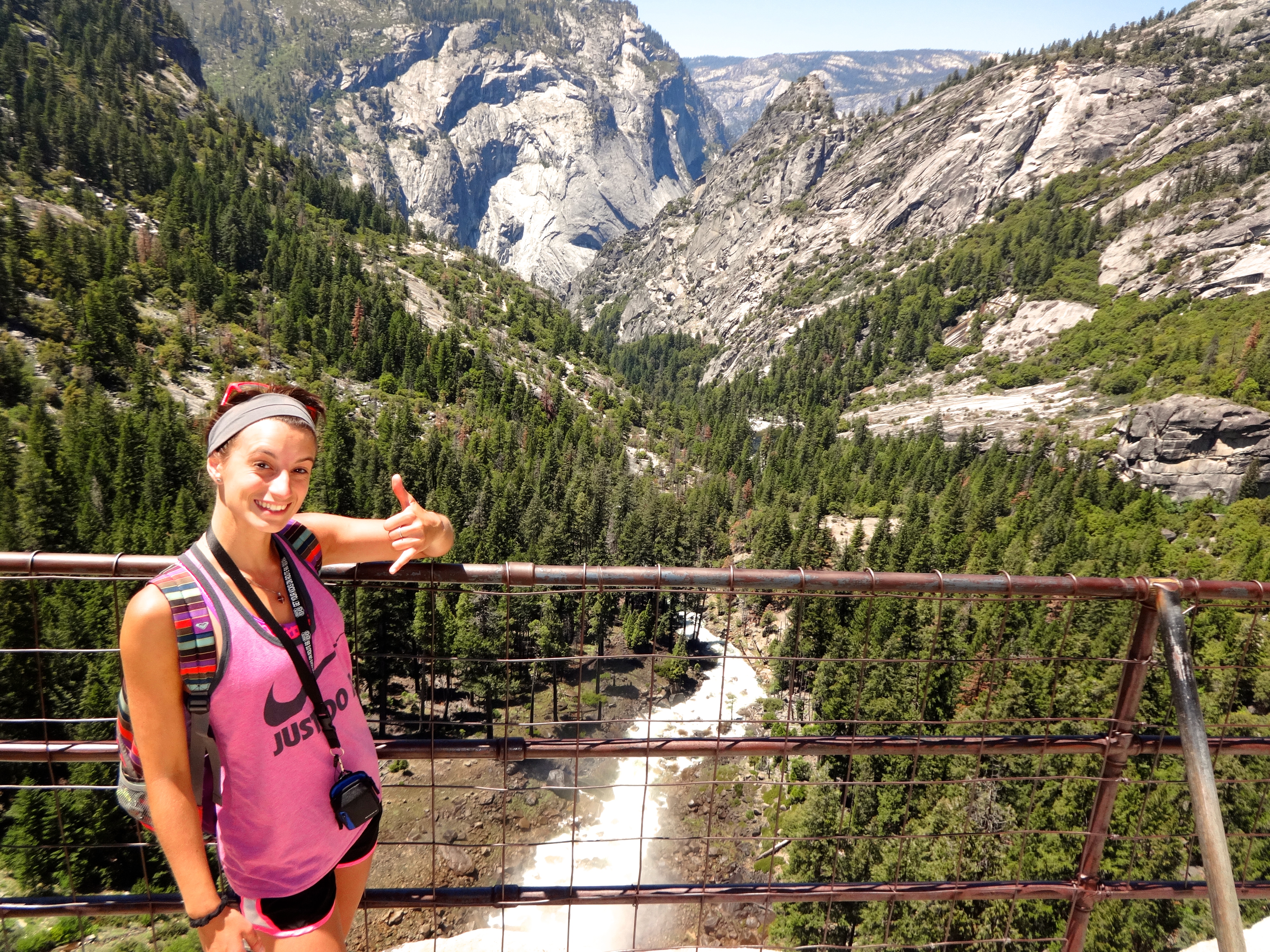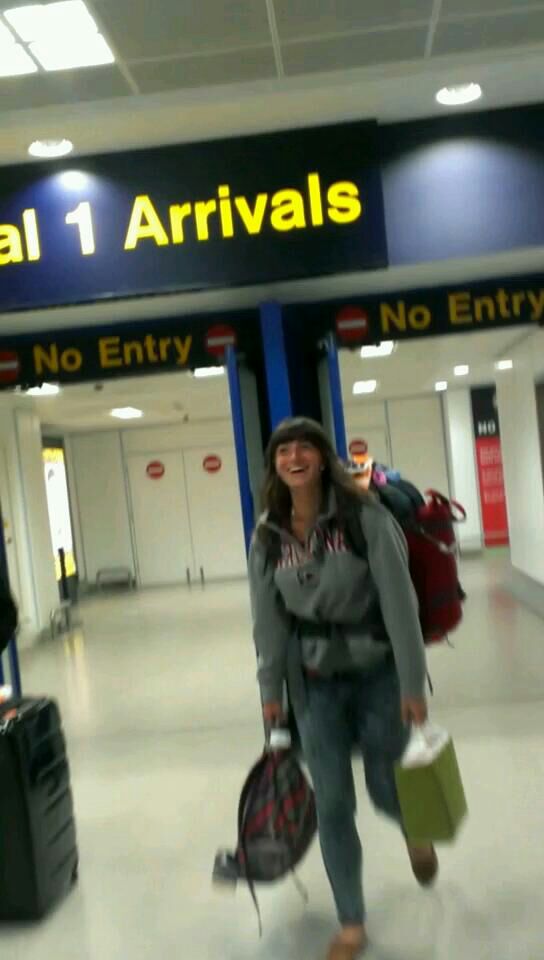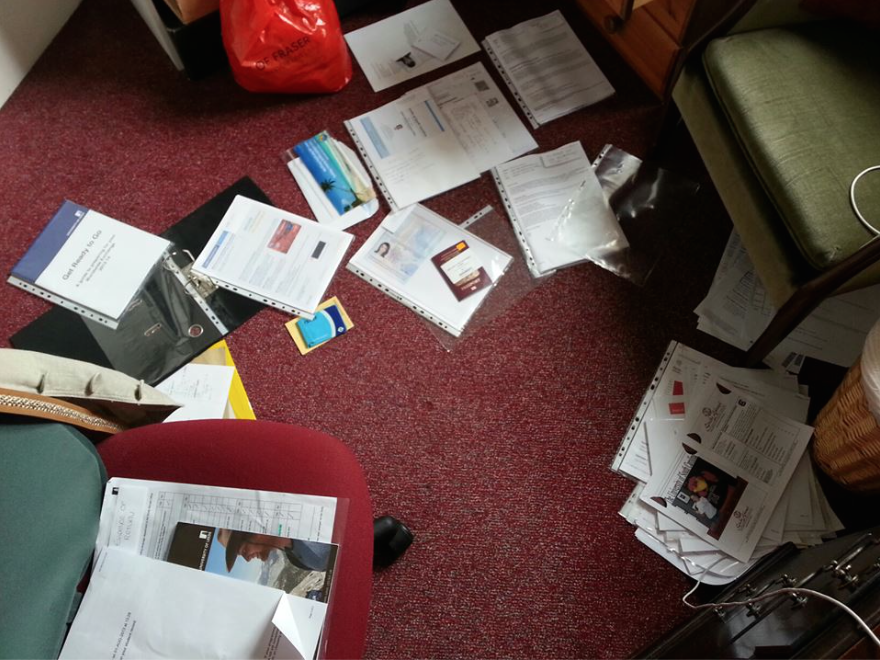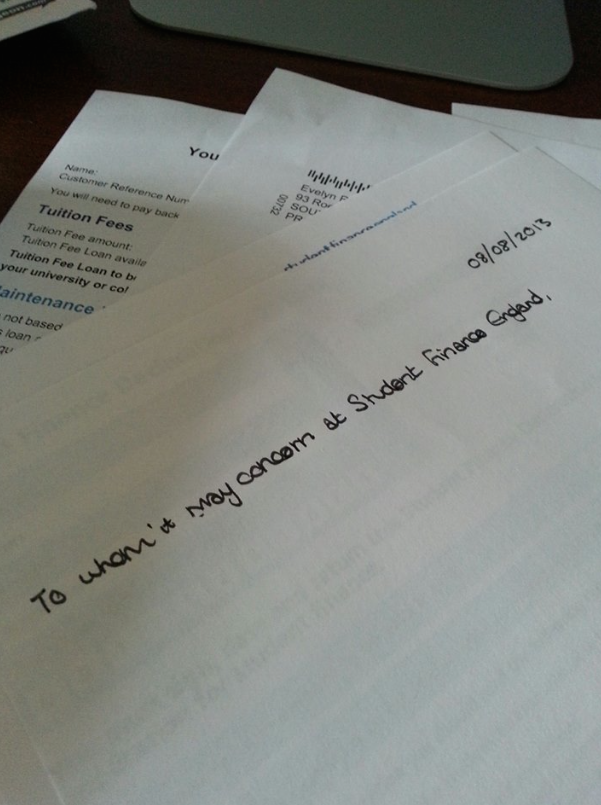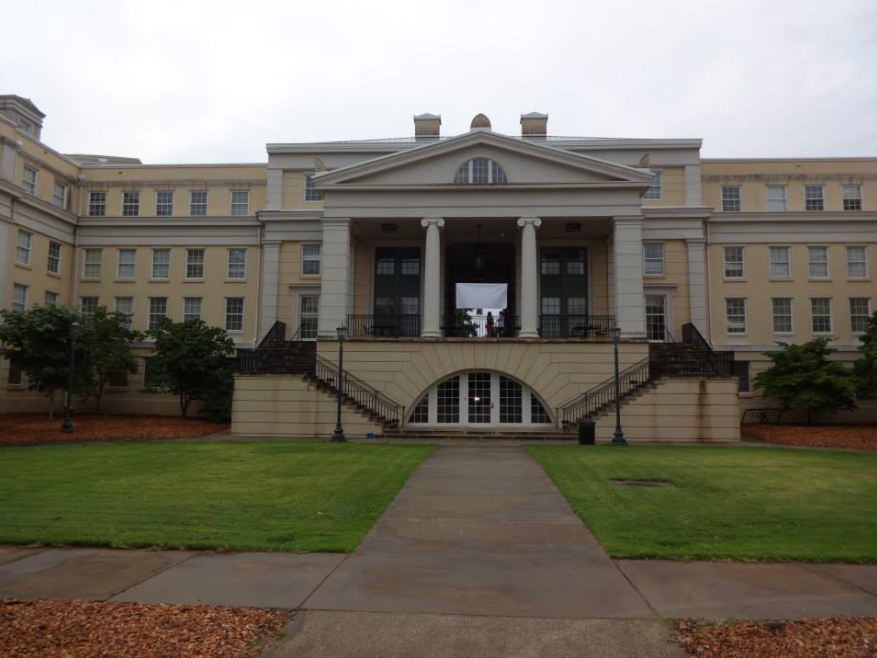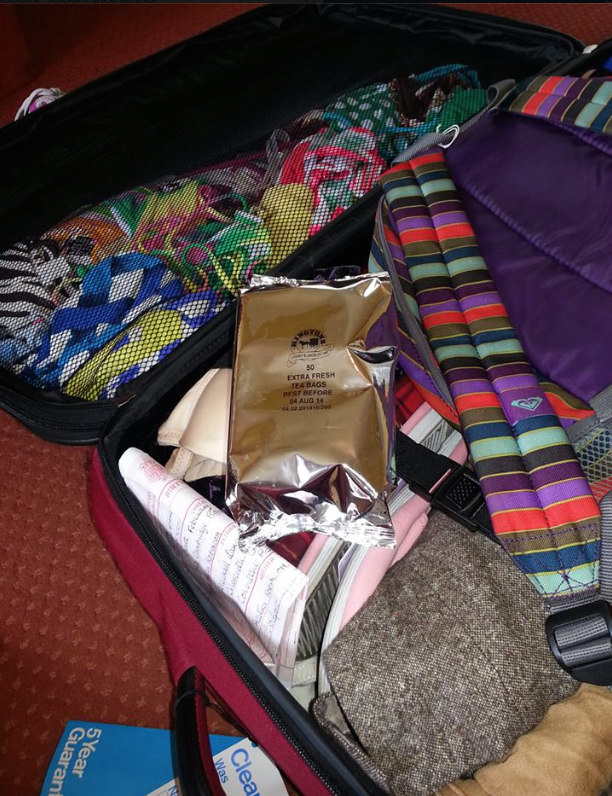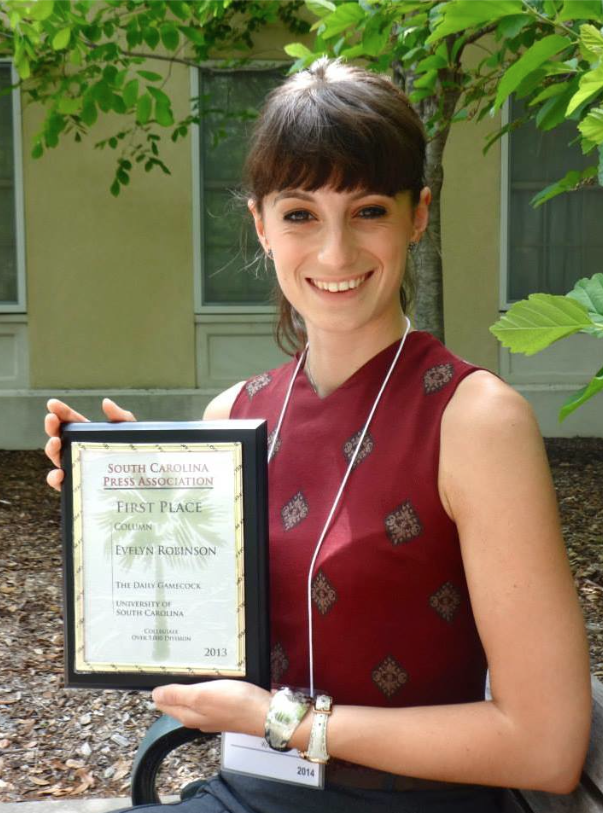I’d been living in South Carolina on my study abroad exchange year and was about to leave the East coast for the first time. I’d decided to end my year abroad in the familiar South with a Trek America trip exploring the West coast, and the time had finally come to start making preparations for my Western adventure.
In the final days before I set off for California, Arizona and Nevada, I went into over-drive. I bought mini scissors, nail files and plasters. Antiseptic liquid, Savlon and a giant tub of painkillers. Not to mention travel-sickness pills, hay-fever tablets, Gaviscon, Dioralyte and Bongela. I bought snap hooks and bungee cords for my bag, a highly-necessary camping seat and almost every travel-sized item on sale at my local pharmacy.
I thought that stocking up for the travel apocalypse would prepare me for anything. Downsizing one thing and compartmentalising another was all part of managing the anxieties I had about travelling around the West Coast with a group of people I’d never met.
On the first morning of the trip we gathered at 7am in our hotel lobby and I was pleasantly surprised to find that the overwhelming majority of the group had also booked the trip alone. I was about to start exploring Western America with a group of like-minded Brits, Danes, Swedes, Austrians and Koreans who wanted to see the world and learn about other cultures just as much as I did.
Our first road trip from LA to San Diego was spent having enthusiastic and curious chats with each other about our respective home countries. By the time we arrived at Mission Beach, I’d learned about the trials of being a woman in the Danish military, what it’s like to slaughter a chicken for dinner in Kenya, the experience of being an Austrian au pair in Washington DC and how to say ‘Hello, my name is Eveie’ in Korean. The minivan was brimming with interesting conversation and stories from all over the world that made me buzz with anticipation for the two weeks ahead.
The group only grew closer with every new experience we shared. By day two we were sharing supplies, by day three we all had nicknames for each other, by day six we were having singing sessions in the mini-van and by day eight we’d had our first hilariously blurry night out together in Vegas. Any cultural differences that set us apart were quickly overcome by the wealth of new experiences that we were discovering together each day.
It’s safe to say that when you cook, eat, sleep and travel with a group of people you’ve just met, you don’t remain strangers to each other for very long. It was a good job, too, because while we were road-tripping through the Arizona desert, I caught a vicious stomach bug that none of the medication I’d brought with me could have cured.
After an entire afternoon launching myself out of the minibus to vomit on yet another helpless Joshua Tree, we arrived in Lake Havasu, Arizona. The sun was setting over the stunning lake and casting an orange glow around the campsite. Weak, exhausted, and pretty delirious, I got out the van and curled up in a ball on the grass.
When I opened my eyes the group had put my sleeping bag over me, brought me a bottle of water and set up my tent. They’d set aside some food in case I got hungry and dug out the paracetamol from the bottom of my rucksack. I’d started to worry that they’d never come near me again after being sick in such a confined space all afternoon, but the gang went out of their way to put me at ease and look out for me when I found myself seriously ill so far away from home.
I’m not sharing my run-in with gastroenteritis as a cautionary tale. Anyone can catch a stomach bug whether they’re at home, on the road, travelling alone or travelling with friends. I’m sharing my nauseating story because it’s a great example of the unspoken understanding that occurs between solo travellers. It’s a kind of team spirit and a commonality that says, ‘We’re all in this together.’
By the end of the trip, we’d become so comfortable in each others’ company that my initial pre-departure anxieties seemed like a million miles away. We’d carried each others’ rucksacks when we got tired, we never moaned about camp duties and we’d created a new Facebook group to keep in touch before we said some painful goodbyes.
American philosopher John Dewey once said, “We do not learn from experience, we learn from reflecting on experience.” It wasn’t until I returned home from my Trek America tour and began to reflect on my travels that I realised just how much the experience had changed me.
On returning home I started to notice that my social habits had changed. Having learned new things about each of my Trekmates every day of the trip, I’ve come to realise that every person has a unique story sitting below the surface. I’ve become a more inquisitive conversationalist (and journalist) who loves meeting new people and learning about a different life perspective.
Spending 11 nights camping in American deserts and national parks has also made me less fussy. I’ve become less preoccupied with all the little, insignificant things like what to wear, whether to wear make-up and how many calories are in my food, and more bothered about the bigger things in life, like keeping in touch with old friends, making time for people and keeping my phone tucked away in my handbag when I go to dinner. It’s safe to say that being accepted by a group of people after I’d thrown up in front of them, multiple times, in the middle of the Arizona desert, gave me a kind of inner confidence to know that despite everything, I must be kind of okay…
Finally, being on a Trek tour has brought out a get-up-and-go approach to life that I never knew I had. Having travelled through three states in two weeks with 13 new people, I’ve realised that the best experiences in life are the ones that test you, challenge you and push you out of your comfort zone. I thought I’d be returning home yearning for familiar home comforts- but the Westerner 2 tour has left me feeling open to change and longing for yet more new experiences.
Travelling around some of America’s most renowned tourist destinations- the Grand Canyon, Yosemite National park and Las Vegas to name a few- is a huge excursion in itself. Committing to that trip with a bunch of strangers I’d never met felt even bigger. When it turned out to be straightforward, uncomplicated, safe, secure and of course, the trip of a lifetime, I was overjoyed. But I was utterly ecstatic that I’d departed for the West Coast expecting to gain new life experiences, and ended up gaining 13 hilarious, fun, and interesting new friends along the way.
